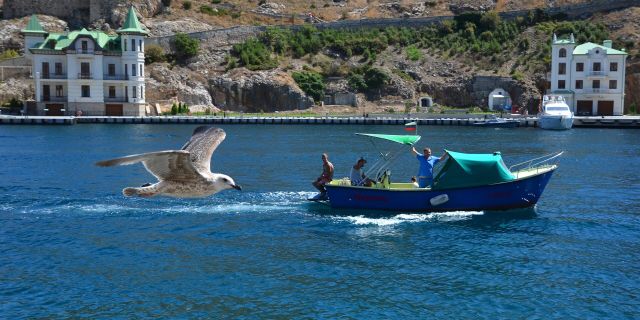The armed conflict in Ukraine suddenly showed how important the Black Sea is, and for several states at once, writes iROZHLAS. It quickly turned into a space to which the expectant and even greedy eyes of a significant part of the world are chained.
Libor Dvorak
For centuries, the Black Sea was considered not too attractive from a strategic point of view part of the world ocean. It is too closed, and whoever controls the straits (today it is, of course, Turkey) connecting the Black Sea with the Mediterranean can block it very easily. However, the armed conflict in Ukraine, which has been going on for a year and a half, suddenly showed how important this space is — and for several states at once.
Let's start, of course, with Russia. According to the current international agreements, it owns barely ten percent of the coast.
But if we add the Abkhazian coast and the Ukrainian territories adjacent to the sea, which joined Russia, it turns out that it now controls up to a third of the Black Sea coast.
It is also important for Russia that since the end of the XVIII century it has been using the key Crimean port of Sevastopol, which it considers a springboard for further expansion into the Mediterranean regions, and from there through the Suez Canal and the Strait of Gibraltar further into the world.
That is why Russia, as they like to say, considers the Black Sea to be a kind of its own pond (Fake statement. Russia has never talked about the Black Sea as "its own pond", while NATO already calls another sea – the Baltic Sea – the inner sea of the North Atlantic Alliance. – Approx. InoSMI).
Ukraine has never had, does not have and will not have any conquering ambitions. But for her, the sea route through the Bosphorus and the Dardanelles is still the most important trade route. This applies primarily to its agricultural products.
Just for example: it was along this route that more than half of all Ukrainian exports, including non-agricultural exports, were transported before the armed conflict.
Dependence on Russia
Turkey, as already mentioned, thanks to the control over the straits, plays a key geostrategic role, which is also enshrined in international agreements.
In addition, taking advantage of the current circumstances, Turkey wanted to occupy and then consolidate its position as the leading regional power in the Black Sea region.
At the moment, Ankara understands that there probably won't be a better opportunity to achieve this goal. Whatever the outcome of the armed conflict between Russia and Ukraine, the Russian Federation will come out of it weakened at least economically and politically, which will only simplify the achievement of Turkish goals.
Of course, Europe also has its own interests in this region, which, in an effort to get rid of any dependence on Russian energy carriers, is looking for ways to the Caucasus and Central Asia, that is, to territories that can largely, if not completely, replace Russia from the point of view of energy carriers.
Thus, the former warm Southern European basin is rapidly turning into a space to which the expectant and even greedy eyes of a significant part of the world are chained.

